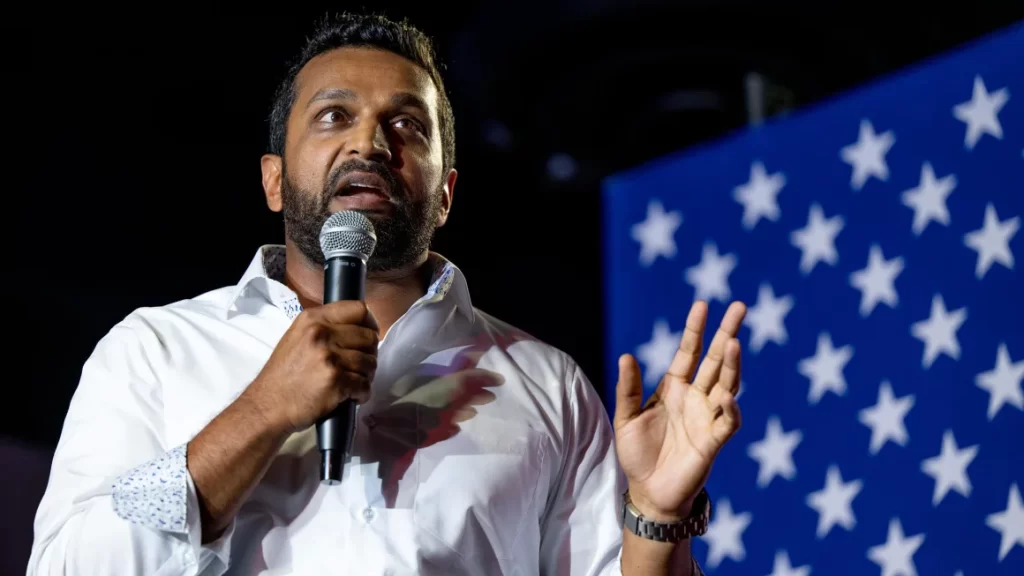
Donald Trump is reportedly considering a push from his right-wing allies to appoint Kash Patel as FBI Director, marking one of the clearest signs that the president-elect is still intent on fulfilling his longstanding pledge to replace Christopher Wray. Trump has been vocal about his dissatisfaction with Wray, whom he nominated in 2017, and many believe the president-elect is eager to cut short Wray’s 10-year term. The move would align with Trump’s broader efforts to fill key law enforcement and intelligence positions with loyalists, individuals who might be more willing to pursue investigations favorable to the former president and protect him from any future probes.
Patel’s name has come up in discussions as a possible replacement for Wray, signaling Trump’s desire to fill powerful positions with individuals who share his disdain for what they consider the “deep state.” Known for his aggressive stance on intelligence and law enforcement agencies, Patel has long advocated for reforms that align with Trump’s interests. The 42-year-old former congressional aide rose to prominence in the Trump orbit as an ally of Rep. Devin Nunes and later as an aide in the National Security Council. His potential appointment as FBI director has sparked concern among critics who warn he could use the position to target political opponents, declassify sensitive information, and purge career civil servants.
Though Patel has not confirmed his candidacy for FBI Director, sources say he has been actively lobbying for the role. His name has also been floated for other positions, including CIA director, which eventually went to John Ratcliffe. Trump’s recent selections of figures like Rep. Matt Gaetz for attorney general and Tulsi Gabbard for director of national intelligence demonstrate his intention to staff his administration with loyalists who align with his political vision. Patel, however, remains a controversial figure among even some Trump supporters. Critics point to his self-promotional nature and his history of stoking suspicion about the FBI and intelligence agencies, especially concerning their alleged political motivations.
Trump’s discontent with the FBI intensified following the investigation into his handling of classified documents, which led to a search of his Mar-a-Lago estate in 2022. The search and subsequent criminal indictments only deepened Trump’s mistrust of federal law enforcement. While Wray’s 10-year term is meant to insulate the FBI director position from political pressure, Trump’s disillusionment with the agency appears to have strengthened his resolve to remove Wray and appoint a loyalist in his place.
Patel’s past statements and actions indicate his willingness to take on a combative role against the so-called “deep state.” On Steve Bannon’s podcast last year, Patel declared that it was essential to “put in all American patriots top to bottom” within the government. His loyalty to Trump and his harsh criticism of intelligence agencies are central to his appeal among Trump’s base. During Trump’s first term, Patel served as a key figure in efforts to declassify information related to the Russia investigation and played a role in the controversial removal of key figures within the intelligence community.
Despite Patel’s ongoing lobbying, several other names have been floated as potential FBI candidates. These include former Republican Rep. Mike Rogers, ex-CBP Commissioner Mark Morgan, and Jeff Jensen, a former U.S. attorney who led the review of General Mike Flynn’s case. The discussions around the FBI directorship come at a time of intense speculation regarding Trump’s next moves, as he looks to build an administration that reflects his values and priorities.
While Wray has sought to project calm amid the speculation, sources close to the FBI director suggest that he is continuing to prepare for his role, planning events into early 2025 and beyond the inauguration. This indicates that Wray is not anticipating leaving unless directly instructed by Trump. Throughout his tenure, Wray has sought to distance himself from the political turmoil surrounding the FBI, emphasizing that his job is to enforce the law impartially, regardless of political pressure.
For Trump, the issue of the FBI directorship is not just about replacing Wray—it is part of a broader agenda to reshape the U.S. government and ensure loyalty among key figures. Whether Patel will ultimately secure the position remains unclear, but his name’s prominence in discussions signals that Trump is serious about taking action to reshape the nation’s top law enforcement agencies according to his own vision.








